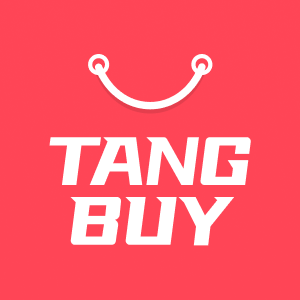Top Tips for Choosing Trusted Home Decor Dropshipping Suppliers in 2025

If you want to find trusted home decor dropshipping suppliers in 2025, you should check if they are reliable. You also need to look at product quality and shipping speed. Unreliable suppliers can cause many problems for you. You could get into legal trouble if they sell fake or unsafe products. Bad quality or late deliveries can hurt your brand. This can lead to bad reviews from customers. To avoid these risks, always check business licences. Ask for samples before you decide. Keep clear communication with your suppliers. Follow these Top Tips to keep your business safe and build trust with your customers.
Key Takeaways
Pick suppliers who have a good reputation. You can look online, go to trade fairs, and read reviews. Always order samples first. This helps you check the product quality, packaging, and how fast it arrives. Choose suppliers who ship quickly and reliably. They should give you clear tracking and delivery details. Look at the return policies closely. Make sure returns are fair and easy for your customers. Work with suppliers who are open about their prices. This helps you avoid hidden costs and keeps your profits safe. Talk to your suppliers often and clearly. This helps fix problems fast and builds trust. Use technology and automation tools to link your shop with suppliers. These tools help you manage orders well. Make sure your suppliers follow safety, legal, and ethical rules. This keeps your brand and customers safe.
Why Trust Matters

Customer Experience
When you run a home decor dropshipping shop, your customers count on you for good products and service. They cannot see or touch the items before they buy them. So, they must trust you to send what you promise. If your supplier is honest, you can give your customers a good experience. Trust is very important for these reasons:
Customers feel sure when they see clear product details, nice pictures, and real reviews.
Fast and steady shipping makes customers happy and makes them want to buy again.
Simple returns and quick help from customer service fix problems fast.
When you order samples and check the quality, you show customers you care about their happiness.
Tip: Pick suppliers who give lots of product details and clear return rules. This helps build trust and keeps your customers coming back.
If you use good suppliers, you have less chance of bad reviews or unhappy buyers. Happy customers often tell their friends and family about your shop. This helps your business get bigger.
Brand Reputation

Your brand’s reputation depends on the trust you build with your customers. If your supplier sends bad products or ships late, your brand gets blamed. You want people to see your shop as honest and reliable. Trusted suppliers help your reputation in these ways:
They always give good products and deliver on time.
They talk clearly and help quickly when there are problems.
They have a good history and happy customer reviews.
They let you test products first, so you know what you sell.
They let you customise, which makes your brand special.
A recent survey showed that 81% of people need to trust a brand before buying. When you work with good suppliers, you show customers your shop cares about honesty and quality. This trust makes customers loyal and gives your brand a strong name in the market.
Business Growth
Good suppliers do more than just send products. They help your business grow and do well. When you pick the right partners, you get better prices, faster shipping, and fewer stock problems. This lets you spend more time growing your shop instead of fixing mistakes.
Experts say over 70% of dropshipping failures happen because of bad supplier choices. Good suppliers keep your customers happy, so you get more sales and repeat buyers. They also help you manage your stock and avoid running out. When you have strong relationships with your suppliers, you get better support and deals.
Note: Trusted suppliers are the base of a good dropshipping business. They help you grow, keep your customers happy, and protect your brand from big mistakes.

Top Tips for Supplier Selection

Research Reputation
You should pick suppliers with a good reputation. This is very important for dropshipping. First, look online for home decor dropshipping suppliers. Use search engines and B2B marketplaces to make a list. You can also go to trade fairs and shows. Meeting suppliers in person helps you trust them and ask questions.
Here is an easy plan to check a supplier’s reputation:
Look for suppliers on Google and B2B sites.
Go to trade shows or online expos to meet them.
Check the background of your top choices.
Talk to suppliers and ask about their business.
Find out how they handle dropshipping orders.
Place a test order to see how they deliver.
You can use supplier directories and platforms that check their vendors. SaleHoo is a good place to start if you are new. It lists trusted suppliers and gives you helpful tools. Alibaba has many home decor items, but not all suppliers do dropshipping. Faire is good for boutique and fancy products, but you may need approval. Social media like Pinterest and Instagram can help you find brands that do dropshipping.
If you want to know more, look at review sites. Here is a table to help you compare some popular choices:
Platform | Key Features & Reliability Evidence | Integration Options | Unique Selling Points / Notes |
|---|---|---|---|
Syncee | Big catalogue with Western suppliers; no minimum order; fast shipping; order processing and tracking are automated. | Shopify, Wix, Squarespace, BigCommerce, EKM | Wholesale options; supplier checking is part of the platform. |
HyperSKU | Over 2,000 checked suppliers with factories; offers warehousing and product customisation; bulk order processing. | WooCommerce, Shopify | Private-label and white-label business models; branding with logos and packaging. |
AppScenic | All suppliers checked to meet platform rules; escrow payment system for buyer safety; shipping takes 2-5 days. | WooCommerce, Shopify, Wix, Ecwid, eBay | AI tools for product descriptions and SEO; refund guarantee; reliable shipping. |
Printify | Print-on-demand platform with many blank home decor products; design mock-ups given. | Etsy, TikTok, eBay, Amazon, BigCommerce, WooCommerce, Shopify | Best for unique, customisable home decor; you need to design or buy designs. |
Tangbuy | over 300,000 products at factory prices, customize items with private labels or packaging, and store inventory for up to 90 days for free in Tangbuys China warehouse. | WooCommerce, Shopify, eBay | Precise pricing, profit guarantee, intelligent product selection, and strict quality inspection |
Always ask about shipping times, return rules, and product lists before you choose. This helps you avoid problems later.
Tip: Try supplier platforms like AutoDS, Wayfair, and CJDropshipping. These platforms check their suppliers and help you find trusted partners.

Product Quality

You want your customers to be happy with what they buy. This means you must check that products are good quality. Many top dropshipping platforms check their suppliers for quality, shipping, and customer happiness. For example, CJDropshipping checks every home decor product before sending it. This helps you feel sure about what your customers will get.
AliExpress also gives buyer and seller protection. This means you get a promise on product quality and delivery times. You should always order samples before you add new products to your shop. This lets you see the quality and find any problems early.
Here are some Top Tips for checking product quality:
Order samples from each supplier.
Check the product for damage, colour, and material.
Test the packaging to see if it keeps the item safe.
Read supplier ratings and reviews on the platform.
Ask about their quality control steps.
If you use platforms that rate suppliers on order fulfilment, you can find the best ones fast. Never skip this step. Your brand depends on it.

Shipping Speed

Fast shipping makes your customers happy. Slow deliveries can cause bad reviews and lost sales. You should always ask suppliers about their usual shipping times. Some platforms, like AppScenic, promise delivery in 2-5 days. This is very good for your shop.
When you test a supplier, place a small order and see how long it takes. Check if the supplier gives you tracking numbers and updates. If they do, it shows they care about your experience.
Here is what you should look for:
Clear information about shipping times.
Tracking numbers for every order.
Fast and reliable delivery partners.
Options for express shipping if you need it.
If you use supplier platforms that automate order processing and tracking, you save time and avoid mistakes. Check your stock levels often so you do not sell too much. This keeps your customers happy and your business running well.
Return Policies

Return policies are very important for your dropshipping shop. If you want your customers to be happy, you need simple and fair return rules. Always check a supplier’s return policy before you start working with them. Some suppliers have tough rules, but others are more easy-going. You do not want any surprises that could cost you money or make your customers upset.
Here is a quick guide to what most good home decor dropshipping suppliers offer:
Return Policy Element | Typical Terms and Conditions |
|---|---|
Returnable Products | Most suppliers take back broken items or if customers are not happy. Custom designs, clearance, and hygiene products usually cannot be returned. |
Return Window | Usually about 30 days. Some sites like AliExpress give 15-90 days. CJdropshipping gives you 30 days. |
Return Shipping Costs | Some suppliers pay for return shipping on some products. Others want the customer or seller to pay. |
Return Process | You must ask for a return, get an RMA number, send the item back in its box, and show proof of damage if needed. |
Refund Method | Refunds go back to the same payment method or as store credit. |
Restocking Fees | Some suppliers charge a fee to put returned items back in stock. |
Fraud Prevention | Suppliers may check for fake returns by asking for proof of damage or watching for strange orders. |
Transparency and Accessibility | Good suppliers put their return policy in a clear place on their website, using easy words and bullet points. |
Tip: Always read the return policy carefully. If you do not understand something, ask the supplier. This helps you set the right rules for your customers and keeps your business safe.
Pricing Transparency
You must know exactly what you will pay when you work with a supplier. Hidden fees can lower your profits and make pricing hard. Some suppliers show all their fees at the start, but others hide extra costs in the small print. Always ask for a full list of costs before you sign up.
Here is a table to help you see how open different suppliers are about their prices:
Supplier | Pricing Transparency Details |
|---|---|
TopDawg | No monthly fee, but hidden fees for order processing and downloads. Pricing can be confusing. |
SaleHoo | Clear subscription fee, but product prices depend on each supplier and may need negotiation. |
CJdropshipping | Free access, but not all fees are clearly listed. |
Syncee | Monthly fees, but extra costs are not always clear. |
Spocket | Subscription fees, but not all extra charges are explained. |
DropCommerce | Monthly fees, but no clear list of all possible costs. |
Zendrop | Free and paid plans, but not all fees are shown upfront. |
You should always pick suppliers who are honest about their fees. If you see words like “extra charges may apply” or “contact us for full pricing”, ask for more details. This helps you avoid bad surprises and keeps your profits safe.
Top Tips: Choose suppliers who are open about their prices. This makes it easier for you to set your own prices and helps your customers trust you.
Communication

Good communication is very important when you work with dropshipping suppliers. You want quick answers and clear updates. Reliable suppliers make it easy for you to contact them and fix problems fast.
Look for these signs of good communication:
Account managers who help you with orders and questions.
Many ways to contact them, like phone, email, live chat, and social media.
Fast help if there is a shipping mistake or stock problem.
Tracking information for every order, so you and your customers always know where things are.
Honest updates about product problems or damage.
Guides and marketing materials to help you sell better.
If a supplier takes too long to reply or does not give clear answers, you might have bigger problems later. Good communication builds trust and helps your business run well.
Note: Always test a supplier’s support before you decide. Send them a few questions and see how fast and helpful they are.
Technology & Integration

You want your dropshipping shop to work well. The right technology helps make things simple. When you pick a supplier, check if they work with your online shop. Many good home decor dropshipping shops like these features:
Supplier talks to your shop using open APIs, prebuilt APIs, EDI, SFTP, XML, or CSV files
Has reporting tools that show real-time data and help with rules
Lets you manage orders, track shipments, sync stock, and make packing slips
If your supplier links well with your shop, you save time and make fewer mistakes. You can track orders, update stock, and handle returns easily. This keeps your customers happy because they get updates and quick service.
Tip: Always ask your supplier what integration options they have before you start. Try a demo if you can. This helps you see if their system is easy to use.
You can also use automation tools to check stock and stop overselling. Many platforms let you set alerts for low stock or new orders. This means you spend less time on admin and more time growing your shop.
Samples & Trials
You should always test products before you sell them. Samples and trials help you check quality, packaging, and delivery speed. When you order a sample, you see what your customer will get. This step builds trust and helps you avoid bad surprises.
Here’s how you can use samples and trials well:
Order a sample of every new product you want to sell.
Check the product for quality, colour, and finish.
Test the packaging to see if it keeps the item safe.
Time the delivery to see how fast it arrives.
Take your own photos for your shop.
If you find any problems, talk to your supplier right away. Good suppliers will listen and help you fix issues. Some suppliers give trial periods or discounts on first orders. Use these offers to test more products without spending too much.
Note: Samples are not just for checking quality. You can use them to make your own product photos and videos. This makes your shop look more real and trustworthy.
Branding Options

Branding helps your shop stand out. When you work with the right supplier, you can add your own style to every order. Some suppliers offer special branding options that help you build a strong brand.
You can look for suppliers who offer:
Branded packaging with your logo or shop name
Thank-you cards inside each order
Private labelling and custom branding services
AutoDS Warehouse and its private suppliers let you add thank-you cards and branded packaging. This small touch can make customers remember your shop and come back. CJdropshipping also supports custom branding and private labelling, even for global orders.
Most big suppliers like Amazon, AliExpress, Wayfair, and Walmart focus on product choice and fast shipping. They do not always offer branding options. If you want to build a unique brand, choose suppliers who support custom packaging and personal messages.
Top Tips: Always ask your supplier about branding options before you start. A simple thank-you card or branded box can turn a one-time buyer into a loyal customer.
Compliance

You want your home decor dropshipping shop to work well. To do this, you need to check if your suppliers follow all the rules. Compliance means your supplier follows legal, safety, and ethical standards. If you ignore this, you could get fines or lose sales. Your shop could even close.
Before you pick a supplier, check these things:
Product Safety: Ask if their products meet UK, EU, or US safety rules. Lamps and candles must pass fire safety tests. If you sell to children, check for the right safety marks.
Certifications: Look for certificates like CE, RoHS, or FSC. These show the supplier follows the rules. Ask for copies of these certificates. Real suppliers will give them to you.
Labelling and Packaging: Make sure the supplier uses the right labels. Labels should show what the product is made of, safety warnings, and where it comes from. This helps you avoid customs trouble and keeps customers safe.
Ethical Sourcing: Many people care about where things are made. Ask if your supplier uses fair labour and eco-friendly materials. Some suppliers have reports or audits to prove this.
Data Protection: If your supplier uses customer data, check if they follow GDPR or other privacy laws. This keeps your business safe from legal problems.
Tip: Always use a checklist for compliance. Ask your supplier to confirm each point before you start selling.
Here is a simple table to help you check compliance:
Compliance Area | What to Check | Why It Matters |
|---|---|---|
Product Safety | Safety certificates, test reports | Protects customers and your shop |
Certifications | CE, RoHS, FSC, or similar | Shows legal and ethical sourcing |
Labelling | Correct labels and warnings | Avoids customs and legal issues |
Ethical Sourcing | Audit reports, fair trade claims | Builds trust with customers |
Data Protection | GDPR compliance, privacy policies | Keeps customer data safe |
If you want to avoid mistakes, use supplier platforms that check compliance for you. AutoDS, Wayfair, and CJDropshipping often work with suppliers who follow these rules. You can also join dropshipping forums to see which suppliers have a good record for compliance.
Remember, following these Top Tips for compliance helps you build a safe and trusted shop. You protect your brand, keep your customers happy, and avoid costly surprises.
Avoiding Unreliable Suppliers

Warning Signs
It is important to spot unreliable suppliers early. This can help you avoid many problems. Some suppliers use very fancy photos that do not show the real product. If you see product descriptions that are not clear, be careful. Good suppliers always give lots of details about their products.
You should look out for these warning signs:
No reviews or feedback from customers. This could mean the supplier is new or not trusted.
Extra fees that are not explained, like surprise service charges.
Prices that are much lower than normal. This might mean the products are fake or not allowed.
Reviews that sound too good or repeat the same words. These could be fake.
Suppliers who want you to pay in unsafe ways, like bank transfers or personal accounts.
Contact details that are not clear or suppliers who will not share their business information.
Tip: If you are not sure, join dropshipping groups or forums. Other sellers share their stories and warn about bad suppliers. This can help you stay safe and avoid losing money.
Common Pitfalls
Many new dropshipping shops make the same mistakes when picking suppliers. You might choose a supplier with cheap prices but get bad products or slow shipping. Some suppliers charge a lot for delivery or do not let you add your own branding. This can hurt your shop.
Here are some common mistakes:
Not checking what other people say about the supplier.
Not testing how fast the supplier answers your questions.
Forgetting that local suppliers can ship faster.
Not looking at minimum order rules or hidden costs.
Not checking if the supplier has enough stock.
Not ordering samples to check the product and packaging.
Not reading the return and refund rules.
You should always look up suppliers, read reviews, and talk to them before you decide. Dropshipping forums are good places to find real stories and see if a supplier is good or bad. People often talk about slow shipping, bad service, or scams. This helps you make better choices and avoid mistakes.
What to Do If Issues Arise
Problems can happen even if you plan well. If you have trouble with a supplier, you need a plan. Use tools to automate orders and messages. This helps you find problems quickly and makes fewer mistakes.
If an order is lost or late, check the tracking number first. Then contact your supplier right away and ask for a new item or a refund. If a customer gets the wrong product, ask them for a photo. Send this to your supplier and ask for a replacement at no extra cost.
If you need to cancel an order, do it quickly. If the order has already shipped, offer your customer a return or part of their money back. Always talk to your suppliers in a polite and professional way. Remember their time zones and payment rules.
Know when your supplier has holidays so you do not get surprised by delays. Tell your supplier if there are problems with product quality. This can help make future orders better. If you have a good relationship with your supplier, they will help you faster.
Note: Share your stories in dropshipping groups to help others avoid the same problems. You can also get advice from people who have had similar issues. This support makes your shop safer and stronger.
Building Strong Partnerships

Clear Expectations
You want your supplier to know exactly what you expect. This helps you avoid confusion and keeps your business running smoothly. Start by checking samples and reading reviews before you list any products. This step lets you see the quality for yourself. Always show realistic shipping times on your product pages. Never promise fast delivery if your supplier cannot meet it. If you sell to customers in the UK or Europe, choose suppliers close to those areas. This makes shipping faster and more reliable.
Here are some ways to set clear expectations:
Test products before you add them to your shop.
Use suppliers with low or no minimum order quantities. This gives you more freedom to try new items.
Make sure your supplier can connect with your e-commerce platform, like Shopify. This helps you manage stock and orders easily.
Understand your supplier’s return policy. Share this with your customers so there are no surprises.
Ask about branding options if you want your own logo or packaging.
Start with a few products. Grow your range as you learn what sells best.
Tip: Always communicate your shipping and return policies clearly to your customers. This builds trust and keeps everyone happy.
Negotiation
Negotiation is not just about getting the lowest price. You want a deal that works for both you and your supplier. Good negotiation starts with clear and friendly communication. Stay professional and listen to what your supplier needs. You can ask for samples to check quality before you commit.
Try these tactics when you negotiate:
Compare prices from different suppliers to make sure you get a fair deal.
Secure long-term contracts to lock in good prices.
Talk openly about your needs, like faster shipping or special packaging.
Be ready to compromise. Sometimes you need to give a little to get what matters most.
Check in with your supplier often. This helps you spot problems early and keeps your relationship strong.
Note: When you build trust with your supplier, you can often get better terms and support for your business.
Ongoing Communication
You need to keep talking to your supplier, even after you start working together. Regular updates help you solve problems quickly and keep orders on track. If you spot an issue, you can fix it before it affects your customers. Ongoing communication also lets you update your shop’s policies and respond to customer feedback.
When you stay in touch, you build trust and make your business safer. You can ask about stock levels, check on shipping times, and share feedback from your customers. This makes your dropshipping process smooth and worry-free.
Keep the conversation going with your supplier. A quick message or call can make a big difference in how well your partnership works.
Scaling Your Business

Automation Tools
If you want your home decor dropshipping shop to grow, automation tools can help a lot. These tools do jobs like finding products, changing prices, and sending out orders. You do not have to do these jobs yourself. This gives you more time to look for new products and help your customers.
Here is a table with some popular automation tools for home decor dropshipping:
Automation Tool | Key Features | Why It Matters for Home Decor |
|---|---|---|
AutoDS | Finds products, changes prices, keeps stock updated, works with many shops | Makes work easier and helps you manage lots of products |
Oberlo | Finds products, updates stock, works with Shopify | Good for beginners who want to grow fast |
Spocket | Has US/EU suppliers, sends orders automatically, ships quickly | Lets you give faster delivery and better quality |
Zendrop | Sends orders automatically, lets you use branded packaging, works with Shopify | Helps you build a strong brand with your own packaging |
DSers | Handles many orders at once, shows supplier reviews, sends orders automatically | Makes it simple to deal with lots of orders |
Printful | Print-on-demand, sends orders automatically | Great for custom home decor items |
CJ Dropshipping | Has warehouses around the world, ships fast, sends orders automatically | Helps you sell in other countries and deliver quickly |
Tip: Try one tool first and learn how it works. As your shop gets bigger, you can use more tools to save even more time.
Supplier Integration
Linking your shop to your suppliers is very important if you want to grow. Platforms like Shopify make this simple. You can connect your shop to many suppliers and apps. This helps you check stock, send orders, and change prices without worry.
Here is a quick table about how Shopify helps your business:
Benefit | What It Means for You |
|---|---|
Flexible costs | Start small and grow as you earn more |
Safe platform | Keeps your shop and customers safe |
App store | Over 1,500 apps for automation and marketing |
Payment options | Lets customers pay in many ways |
Support | Fast help when you need it |
You can also meet new suppliers at trade shows or by joining business groups. Meeting suppliers face-to-face lets you see their products and ask questions. You might get better prices and find special items for your shop. Talking to people at these events helps you make good business friends.
Note: Trade shows and online groups are great for meeting suppliers you cannot find anywhere else.
Market Trends

The home decor market is getting bigger every year. If you want to do well, watch for new trends and listen to your customers. Here are some top trends for 2025:
Wall art and prints are always liked.
Curtains and blinds are selling more, especially in the US and Europe.
Seasonal decor for holidays like Christmas and Easter sells well.
Smart home gadgets, like smart locks and doorbells, are very popular.
Vintage-style decor is always in fashion.
Eco-friendly products are important because more people care about the planet.
You can use Google Trends to see what is popular. Social media like Instagram and Pinterest help you find new customers. Try working with influencers or sending emails to get more sales. Build a clear brand and offer fast shipping and easy returns.
Watch trends and update your shop often. This helps you get more buyers and grow your business every year.
Choosing the right home decor dropshipping supplier can make or break your business. Start with solid research, check supplier backgrounds, and always test products yourself. Fast shipping and clear communication keep your customers happy. Here’s what works best:
Search online and attend trade fairs to find suppliers.
Check their reputation and talk to them directly.
Place sample orders to test quality and speed.
Focus on a niche and keep your website user-friendly.
Listen to customer feedback and update your policies.
Take these steps and you’ll build strong, trusted supplier relationships. Ready to grow your shop? Start today!

FAQ
What is dropshipping in home decor?
You sell home decor items online. Your supplier ships products straight to your customer. You do not keep any stock. This makes it easy to start your own shop with less risk.
How do I check if a supplier is trustworthy?
Look for real reviews and business details. Order a sample to see the quality. Ask questions and see how fast they reply. Trusted platforms like AutoDS or Wayfair help you find good suppliers.
Can I use my own branding with dropshipping suppliers?
Yes, some suppliers offer custom packaging and thank-you cards. Ask about private labelling or branded boxes. This helps your shop stand out and builds trust with your customers.
What should I do if my supplier ships late?
Contact your supplier right away. Ask for an update or tracking number. Tell your customer about the delay. Good suppliers will help you fix the problem quickly.
Do I need to worry about product safety and compliance?
Yes, always check for safety certificates and proper labels. Ask your supplier for proof. This keeps your customers safe and protects your business from legal trouble.
How can I avoid running out of stock?
Use automation tools to track stock levels. Set alerts for low stock. Check with your supplier often. This helps you avoid selling items that are not available.
What are the best ways to find trending home decor products?
Check Google Trends and social media like Instagram or Pinterest. Watch what people share and buy. Join dropshipping forums for tips. You can also ask your supplier about best-sellers.

TangBuy: A Smarter Way to Dropship in 2025
If you're looking to stay competitive with dropshipping in 2025, speed and trend-awareness are key. TangBuy helps you stay ahead with real-time product trends, fast fulfilment, and factory-direct sourcing. With over 1 million ready-to-ship items, 24-hour order processing, and seamless Shopify integration, TangBuy makes it easier to test, scale, and succeed in today's fast-moving eCommerce landscape.
See Also
Essential Strategies For eBay Dropshipping Success In 2025
Selecting Trustworthy Wholesale Suppliers For Affordable Bulk Shoes
Comprehensive Guide To Starting A Dropshipping Venture In 2025

